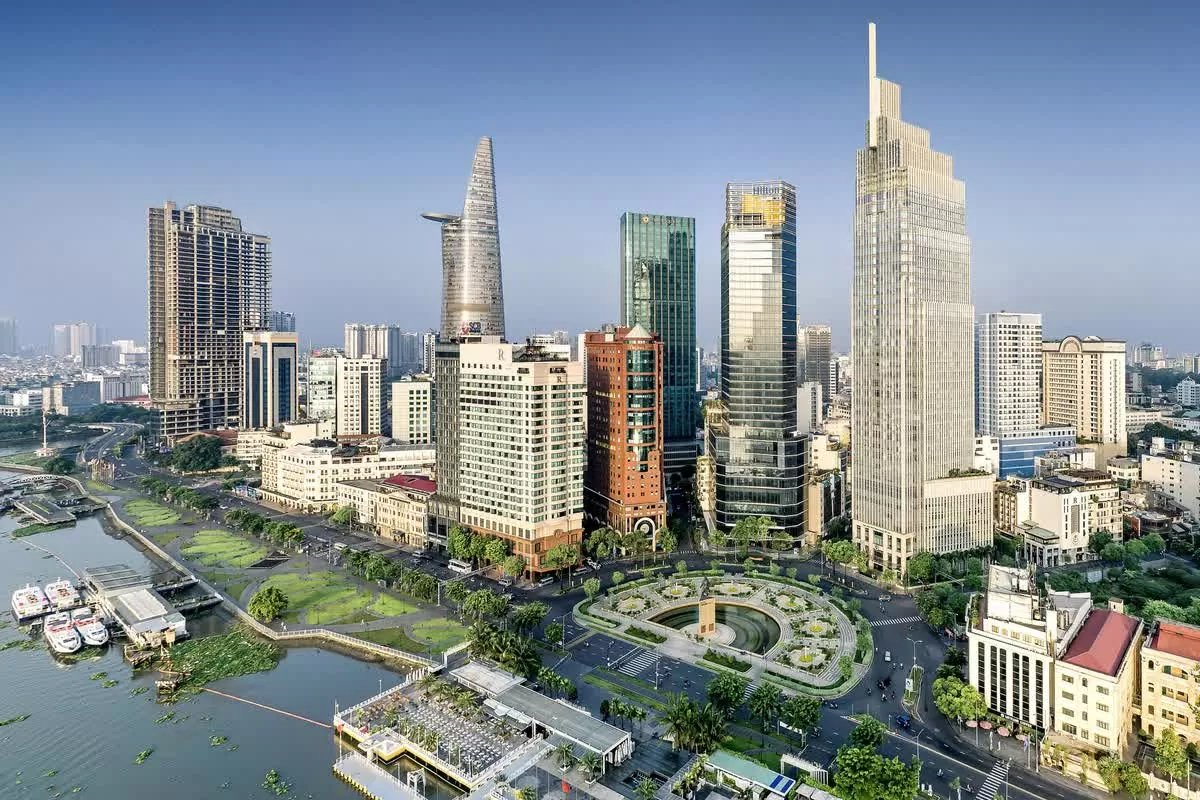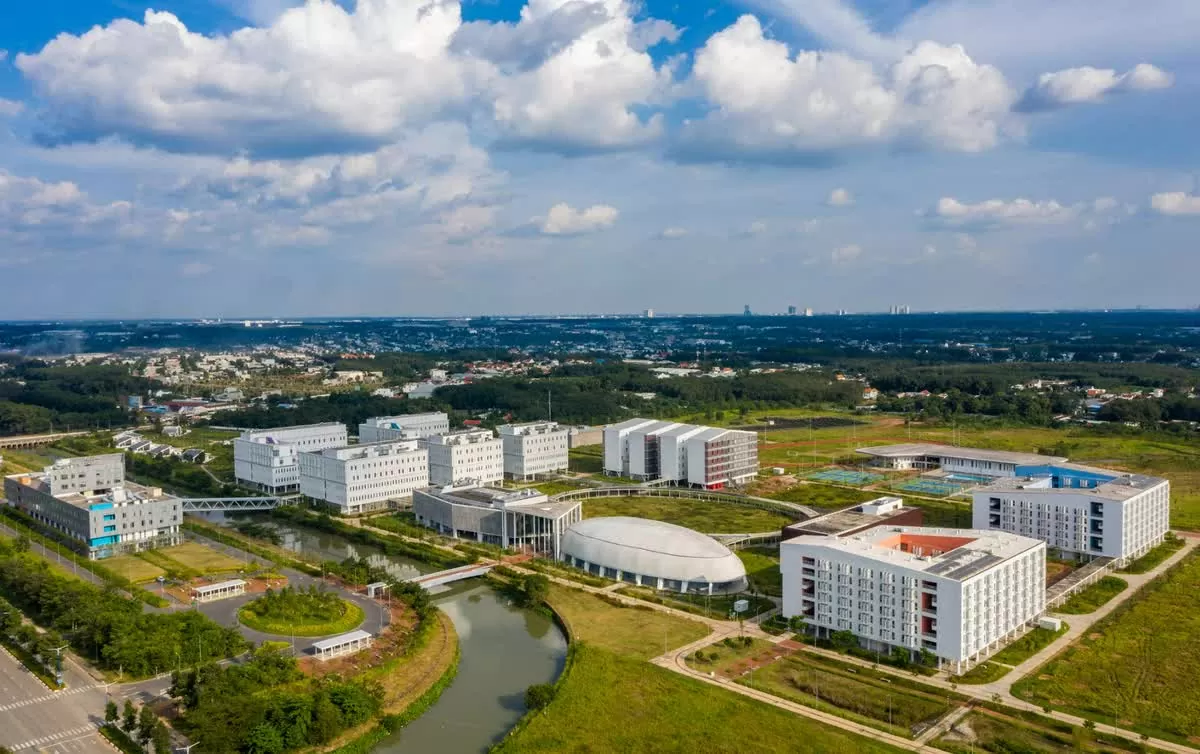
Vietnam’s economy in the rising era (part II):
Accumulating great 'assets', confidently rising ahead
Latest
 |
| Prof. Dr. Andreas Stoffers metaphorically describes the dragon (Vietnam) as one of the fastest-growing countries in terms of economic freedom. (Image created by ChatGPT) |
With the achievements it has attained, what is your forecast for Vietnam’s economic development in the coming years? In your opinion, what should the country prioritize?
Vietnam’s economy is expected to grow positively. Policymakers are determined to promote institutional reforms and streamline the administrative apparatus to enhance effectiveness and efficiency, focusing on removing obstacles, fostering growth, and promoting trade and foreign investment.
However, from my perspective, challenges remain, primarily in the form of external risks for Vietnam. For example, the ongoing conflicts in Ukraine and the Middle East, economic recessions in leading economies (such as Germany), and the risk of imported inflation due to excessively loose financial and monetary policies in some countries.
Obviously, after nearly 40 years of renovation (Doi Moi), Vietnam must continue to take the next steps. Although Vietnam’s socio-economic development is progressing well, we cannot “turn a blind eye” to the existing domestic issues and challenges.
As a former banker, I am particularly concerned about the bond and stock markets. Vietnam needs to create greater transparency while improving regulations in these markets, which are currently in their infancy.
Moreover, Vietnam faces the risk of falling into the middle-income trap. There are many things the country can do, but I want to emphasize one issue, which is the establishment of green finance in Vietnam and the construction of a financial center in Ho Chi Minh City (and perhaps in Da Nang) in the future.
| Obviously, after nearly 40 years of renovation (Doi Moi), Vietnam must continue to take the next steps. Although Vietnam’s socio-economic development is progressing well, we cannot “turn a blind eye” to the existing domestic issues and challenges. |
I consider this as one of Vietnam's key projects on its path to becoming an industrialized country by 2045, because an industrialized nation requires not only a strong manufacturing base and an excellent education system but also a financial foundation supported by the establishment of a financial hub.
A financial center in Vietnam could significantly benefit the economy, particularly on modern financial instruments, digitalization, and green finance.
In terms of the financial hub in Ho Chi Minh City, what are your recommendations?
I have several recommendations:
First, initiatives to establish a financial hub in Ho Chi Minh City should focus on ensuring adequate financial resources and granting decision-making authority to relevant institutions.
Second, it's neccessary to create national regulations for green classification, aligning with existing industry standards and global practices.
Third, policies to promote the carbon market should be developed to accelerate the formal implementation of a carbon credit trading platform in Vietnam.
Fourth, the Ministry of Natural Resources and Environment and other relevant authorities should collaborate to establish and implement environmental criteria for green credit allocation.
Fifth, the State Bank of Vietnam must maintain its support for credit policies that encourage green growth within the banking sector.
Vietnam must advance further in green finance and technology. In this context, implementing environmental, social, and governance (ESG) standards is critical to enable Vietnamese banks to access international green capital for domestic businesses.
 |
| The financial center in Ho Chi Minh City is expected to have a significant positive impact on the rest of the economy. (Photo: Van Trung) |
In many of your conversations, you have drawn comparisons between the socio-economic development of Poland and Vietnam. Are there other countries with similarities to Vietnam’s development? Based on these comparisons, how do you foresee Vietnam's future?
Indeed, I often mention Poland, a country that has achieved significant progress in liberalization, economic growth, and socio-economic development over recent decades. This assessment aligns with the findings of the Heritage Foundation in its annual reports.
Of course, there are countries with more advanced economies than Vietnam and Poland. However, the "White Eagle" (Poland) and the "Dragon" (Vietnam) are among the fastest-growing nations in terms of economic freedom.
In relation to Vietnam’s “bamboo diplomacy”, I would like to mention one neighbor as a notable example: Thailand has maintained its independence for centuries by opening up to the West and implementing reforms, despite external threats. This country also tries to maintain a diplomatic balance among the global superpowers.
Thailand's economic growth stems from its political stability and good relations with other countries in the world.
In this regard, Vietnam’s diplomacy serves as a valuable asset for the nation’s development. Personally, I believe that if Vietnam continues on its path of economic openness and bamboo diplomacy, peace and economic cooperation remain prerequisites for Vietnam’s sustainable development in the future.
| With the "assets" accumulated during its reform period, Vietnam can confidently advance into this new era of growth and development. |
Vietnam aims to become a developed country by 2045, bringing the country into a new era, an era of national advancement. What solutions would you suggest for Vietnam to achieve this strong development in the new era?
Although Vietnam is well-positioned to become a developed country, external factors could disrupt this progress. These include global political conflicts, U.S.-China economic tensions, and the mounting debt crisis in Western economies. Additionally, Vietnam remains at risk of falling into the middle-income trap.
In the future, I believe it is crucial for Vietnam to continue leveraging the strengths of a market economy, maintaining openness to foreign investors, and expanding integration into international trade. Further integration within ASEAN or signing additional free trade agreements (FTAs) would be good suggestions for Vietnam.
Streamlining administrative processes is another area where Vietnam must be determined to carry out in order to make the next steps forward. Moreover, the country could harness the immense potential of the Vietnamese diaspora, using them as a bridge to connect with the homeland.
In terms of industrial development, Vietnam should focus on high-potential sectors, particularly green technology, and aim for breakthroughs in finance.
Finally, in my opinion, economic development requires an excellent education system. This applies to all areas of education, from vocational training to university education. Vietnam has excellent universities. However, the differences between universities of various tiers are still too large.
Vietnam can collaborate with international partners to transform the educational landscape. Beyond “lighthouse” projects like the Vietnamese-German University in Binh Duong, Vietnam needs to attract private universities as partners and investors. Germany, my home country with its exceptional education system, could be a potential partner. A well-educated population is a huge asset for a nation’s economic growth.
 |
| The campus of Vietnamese-German University in Thoi Hoa Ward, Ben Cat Town, Binh Duong Province. (Photo: Ba Son) |
What are your messages to Vietnam in the rising era?
With the "assets" accumulated during its reform period, Vietnam can confidently advance into this new era of growth and development.
In the context of many socio-economic changes, Vietnam should preserve its unique cultural identity. Additionally, it should implement policies to attract talented individuals from abroad who are ready to work in Vietnam and contribute to the nation by creating opportunities for these experts to gain Vietnamese citizenship.
Furthermore, the country must encourage and prioritize education for its youth—the future of country. My nine-year-old son is a Vietnamese citizen. My mission is to raise him so that one day, this young Vietnamese citizen can make significant contributions to Vietnam's development—just as I am doing with my second homeland!
Sincerely thank you!













